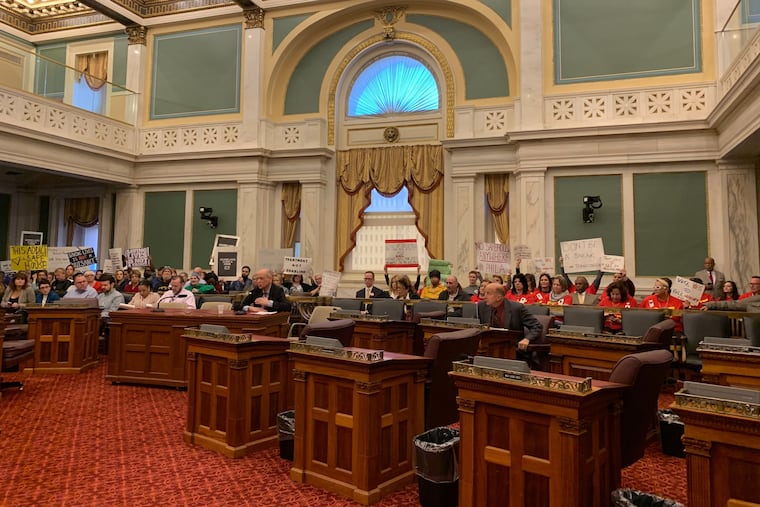City Council’s budget should not be immune to scrutiny | Editorial
Forgoing hearings on Council’s budget is yet another way that our legislative body eschews transparency.

This is not the first time this Editorial Board has called for City Council to hold public hearings on its own budget. But it may be the most urgent time that we’ve called for it.
The pandemic already blew a $750 million crater in the current year’s budget, which resulted in painful cuts. Next year the city is staring down another $450 million hole. After Mayor Jim Kenney delivers his budget address in mid-April (pushed back from the usual March to see if federal aid is forthcoming), City Council will spend weeks in budget hearings. They will scour each line item of every department to force the administration to justify every dollar to the public.
That is, they’ll scour every line except those in City Council’s own $18 million budget.
Council President Darrell L. Clarke has for years rejected calls to hold hearings on the money that Council itself spends. In the past, he has justified such opacity with procedural runarounds, suggesting that it would be ludicrous for Council members to ask themselves questions about their own budget. Forgoing hearings on Council’s budget is yet another way that our legislative body eschews transparency and accountability, and creates different rules for itself than for the rest of city government.
There are plenty of details to dig into. For example, a 2016 Pew analysis found that Philly Council members’ salaries were the third-highest among 15 cities studied — higher than New York, Boston, and San Diego, all of which have higher costs of living.
» READ MORE: City Council rejects probe of its own budget
That’s not all that hearings might illuminate. City employees’ salaries are public, after all, so that information is at least accessible. But how much is allocated to each Council member’s office is still a black box. Seniority plays a role in how dollars are divvied up, but hard numbers are not available, and therefore not subject to scrutiny.
Who are Council’s budget winners and losers? Council President Clarke has enough resources to amass an army of staffers — City Council’s website lists 40 employees among his district staff, the president’s office, and technical staff — which gives one official an analytical and technical firepower that dwarfs that of his Council colleagues, whose staffing averages between seven and nine. Granted, many of Clarke’s staffers work on behalf of Council as a whole, but that shouldn’t preclude questions about how each expenditure is justified.
Like the much bemoaned and ever-expanding councilmanic prerogative, which gives Council members the ability to lord over land deals in their districts, this expansion of resources looks like an accumulation of power — unchecked by proper public accounting.
We don’t yet know what will be in the mayor’s budget, and where the administration will decide to trim from what was already dangerously close to the bone last year. And yet, if City Council keeps its spending as opaque as it has — despite the need for an equitable recovery from the worst fiscal and public health crisis in years — we’ll never know if it is treating our tax dollars with the same urgency and fairness as it demands from other city departments. If ever there was a time to increase transparency, it’s now.